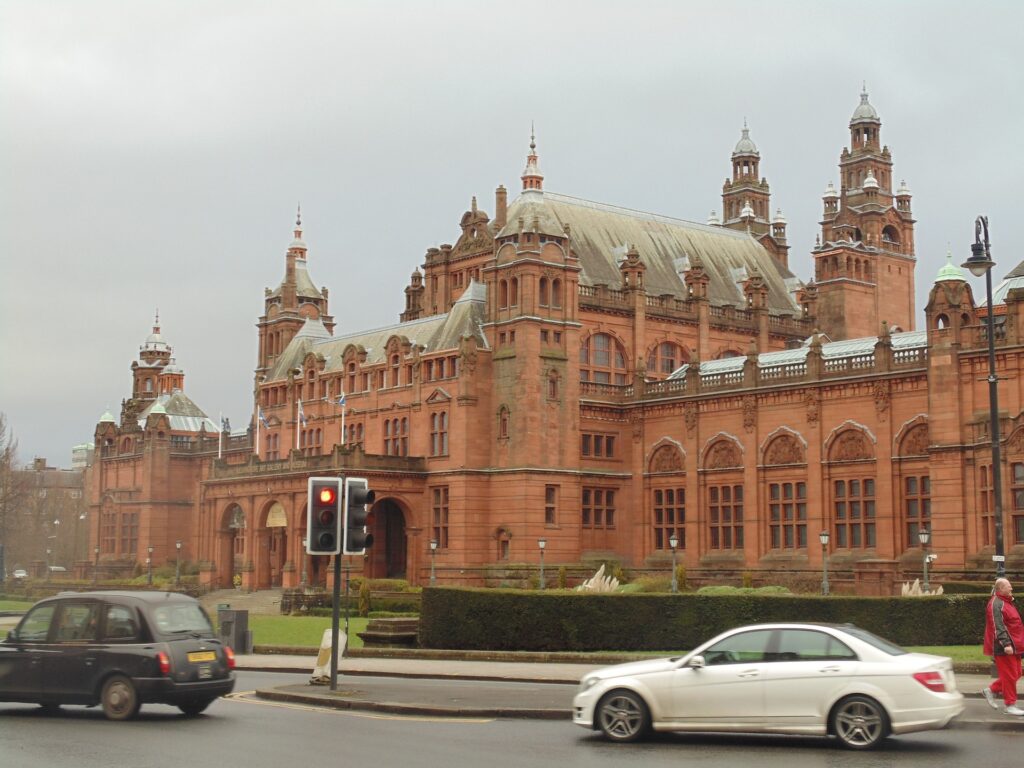TWO leading experts have quit the Scottish government’s clean air strategy team over Glasgow’s low emission zone roll-out.
They said they had suffered “disappointment in and frustration” around the Cleaner Air for Scotland Governance Group lack of progress in tackling unsafe levels of air pollution.
They cited and input into Glasgow’s draft Low Emission Zone plans as a key reasons.
Pollution Campaigner Emilia Hanna and Scottish Environment LINK Honorary Fellow Professor James Curran MBE represented LINK on the Group.
The following is the resignation letter in full:
Dear Co-Chairs
Resignation from Cleaner Air for Scotland Governance Group
It is with regret that I write today to inform you that Scottish Environment LINK is resigning from the Cleaner Air for Scotland Governance Group (CAFSGG), the stakeholder group which has been set up to ensure that mechanisms are in place so that Scotland’s air quality is among the best in Europe, and legally compliant by 2020.
LINK has been represented by Professor James Curran MBE, LINK Honorary Fellow, and Emilia Hanna, Air Pollution Campaigner for Friends of the Earth Scotland.
I wish to explain very clearly our reasons for resigning, because we have not taken this decision lightly.
We wanted the CAFSGG to be a success and were keen to ensure there was appropriate ambition and focus within the Group.
However, we have regrettably come to the conclusion that, in continuing to remain on the Group, we would be compromising the integrity of Scottish Environment LINK, and lending LINK’s environmental credentials to legitimise a process which is failing the people of Scotland.
We want Scotland’s air quality to be legally compliant as soon as possible, in line with Scotland’s obligations under European law and in line with the continued urgent and pressing need to stop preventable early death and ill-health for exposed populations.
It is clear to us that continuing to be represented on the CAFSGG is no longer an effective route for us to pursue that aim.
Over the past two years, the LINK representatives have raised numerous concerns, including: delivery model, terms of reference, individual responsibilities, organisational responsibilities, support and resources, programme management, performance monitoring, performance reporting, external communications, engagement of decision-makers, delivery of sub-tasks, commitment, ambition, and urgency.
In particular, for two years the LINK representatives have made every constructive effort to inject ambition and urgency into the creation of Low Emission Zones (LEZs) in Scotland.
At nearly every single stage they have felt frustrated by lack of progress.
The result for Low Emission Zones is that Glasgow’s, and Scotland’s first, LEZ proposal is far weaker than it could be – in part, we believe, because elected representatives lack the evidence they need to be as bold and as ambitious as they would like to be.
Judging by available modelling, the Glasgow LEZ in its current design seems guaranteed to result in continued illegal and therefore dangerous levels of air pollution in Glasgow streets after 2020.
In addition the LINK representatives have been disappointed in the resourcing, determination and performance management and reporting of the work of the Group.
The result is that the CAFSGG is well behind in delivering its stated aims which will therefore render the Scottish Ministers’ commitment for legally compliant air quality by 2020 almost certainly impossible to achieve across Scotland.
We are therefore left with no choice but to withdraw LINK’s representation on the Group.
We still believe that clean air is achievable in only a few years, and that both the implementation of meaningful LEZs and the adoption of truly sustainable transport policies can deliver the healthy environments that every person has a right to enjoy.
We now believe that we can be more effective working outside of the Group.
We recognise that among elected representatives, civil servants, and Ministers, there is certainly enough dedication, expertise and ambition for clean air to be achieved. We have met with ambitious, proactive, visionary Councillors who want to go as far as possible, particularly in Glasgow.
We will continue our influencing role, but using more effective channels where we can work from a position of integrity.
We will continue to engage with and encourage local authority officials and councillors, Government Ministers, Transport Scotland, and SEPA.
But we will also publicly demand much more effective action.
Yours sincerely, Jen Anderson Chief Officer
Professor Curran MBE said: “We had no alternative but to resign. For two years we made every effort to inject ambition and urgency into the creation of the first LEZ. In the end we’re deeply disappointed.
“Recently Scottish Government created an ambitious, strategic and tightly managed national system to tackle flood risk – and now funds it with over £40M per year.
“Sadly there is no similar determination to tackle air pollution which is directly causing thousands of premature deaths.”
“The High Court ordered that air pollution problems must be fixed as fast as possible and that cost can’t be used as an excuse.
“When thousands of people, particularly from deprived communities, are exposed unknowingly to toxic fumes then Government must force vested interests to act – to act responsibly and to act immediately.
Hanna added: “Air pollution has an enormous death toll in Scotland, with over 2500 people dying early from toxic fumes every year.
“Getting the policies right to tackle air pollution is literally a matter of life and death, but there was very little sense of urgency on the Cleaner Air for Scotland Governance Group.
“It took the group months to take on the task of delivering Low Emission Zones after they were made a ministerial commitment.
“There has been a culture of denial on the group, with members keen to ensure we spoke only about ‘poor air quality’ than ‘air pollution’.
“Denialism, apathy and foot dragging on the group has meant missed opportunities and unnecessary loss of life from air pollution.
“To stay on the group would be to compromise the integrity of Scottish Environment LINK.
“For two years we have tried to help the group move beyond a collective unwillingness to tackle air pollution head on.
“The lack of actual facts on bus numbers, available finance and legal options that has informed Glasgow LEZ plans has been the final straw and we feel that we can be more effective in achieving clean air outside of the group.
“It is vital that the Glasgow LEZ tackles cars, vans, lorries, and taxis as well as just buses, because we know that a bus-only LEZ would fail to deliver all the necessary improvements in air quality required to achieve clean air.
“But the group ignored our calls to build evidence for and around a wide reaching LEZ and as a result, the original Glasgow plan was unacceptably timid.
“Given that the target for the first year of operation is nothing more than would have happened anyway, the LEZ is going to have little impact on the 300 deaths from air pollution in Glasgow predicted for 2019.”
The Scottish Government said it was disappointed by the resignations.
WANT TO LEARN MORE? Read: Urgent campaign launched by Friends of the Earth Scotland as country’s first LEZ falls short
IMAGE CREDITS: Revpeconroy0

